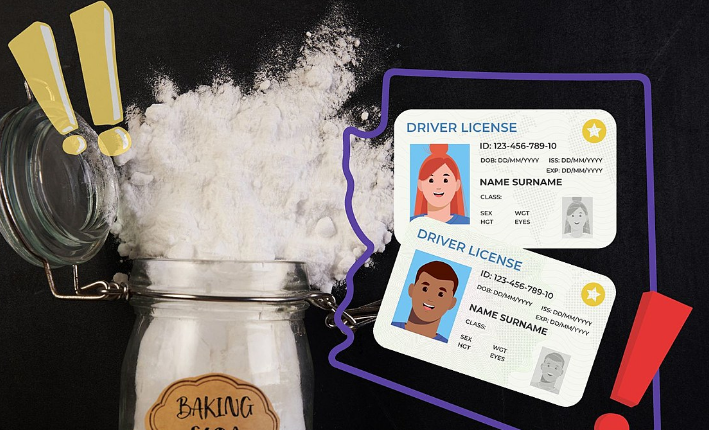In a surprising turn of events, the state of Texas finds itself at the center of a heated debate over the recent proposal to require identification for the purchase of everyday items, with baking soda now under scrutiny. This controversial trend, already witnessed in various U.S. states, aims to regulate the sale of seemingly innocuous products like Sharpies, highlighters, and fuel cleaner, with the intention of curbing potential misuse.

The proposed inclusion of baking soda in this list has ignited a fierce discussion among the public, revealing a sharp divide in opinions. Advocates argue that such measures are essential for public safety, preventing the misuse of commonly available items for illicit purposes. This perspective emphasizes the need for responsible regulation to protect communities from potential harm.
On the other side of the debate, there is a growing sentiment that these measures infringe upon personal rights and represent an unnecessary intrusion into the daily lives of law-abiding citizens. Critics argue that the requirement of identification for purchasing commonplace items creates a burdensome and unwarranted bureaucratic process, questioning the effectiveness of such regulations in preventing misuse.
The broader context of this debate involves a series of regulatory changes across the United States, responding to incidents where seemingly harmless products have been misused for illegal activities. The rationale behind these measures is rooted in the desire to enhance public safety by monitoring and restricting access to items that could be repurposed for harmful activities.
In Texas, the proposed regulation of baking soda purchases has garnered attention and stirred conversations about the balance between individual freedoms and public safety. Baking soda, a staple in many households for its versatile uses, has become an unexpected focal point in discussions about the limits of regulatory intervention.
Proponents argue that by implementing identification requirements for baking soda, authorities can better track and deter potential misuse, particularly in the creation of illegal substances. This perspective aligns with a broader trend in which legislators are reevaluating the accessibility of certain products to address evolving safety concerns.
However, opponents view these regulations as a slippery slope, expressing concerns about the potential expansion of such measures to include more everyday items. Critics worry that the requirement for identification when purchasing baking soda sets a precedent that may pave the way for increased governmental oversight into personal choices and household purchases.
As the debate unfolds, it becomes evident that finding a consensus on this matter is challenging. Public opinion remains divided, reflecting a delicate balance between the need for public safety measures and the desire to protect individual liberties.
Read More:
- California’s Historic Move to Insure Undocumented Immigrants
- Six-Year-Old Prodigy Chandler Hughes Joins Mensa as “Texas Whiz Kid”, Setting New Records
- Chilled to the Bone: North Texas Gears Up for Frigid Weather Ahead
The controversy surrounding the identification requirement for baking soda purchases in Texas is emblematic of a broader societal conversation about the role of government in regulating everyday items. It prompts individuals to reflect on the fine line between security and personal freedom, raising fundamental questions about the limits of legislative intervention in the name of public safety.
As the debate continues to gain momentum, it remains to be seen whether Texas will adopt this regulation or if it will serve as a catalyst for a more nuanced and comprehensive discussion about the delicate equilibrium between individual rights and collective security in our evolving society.

